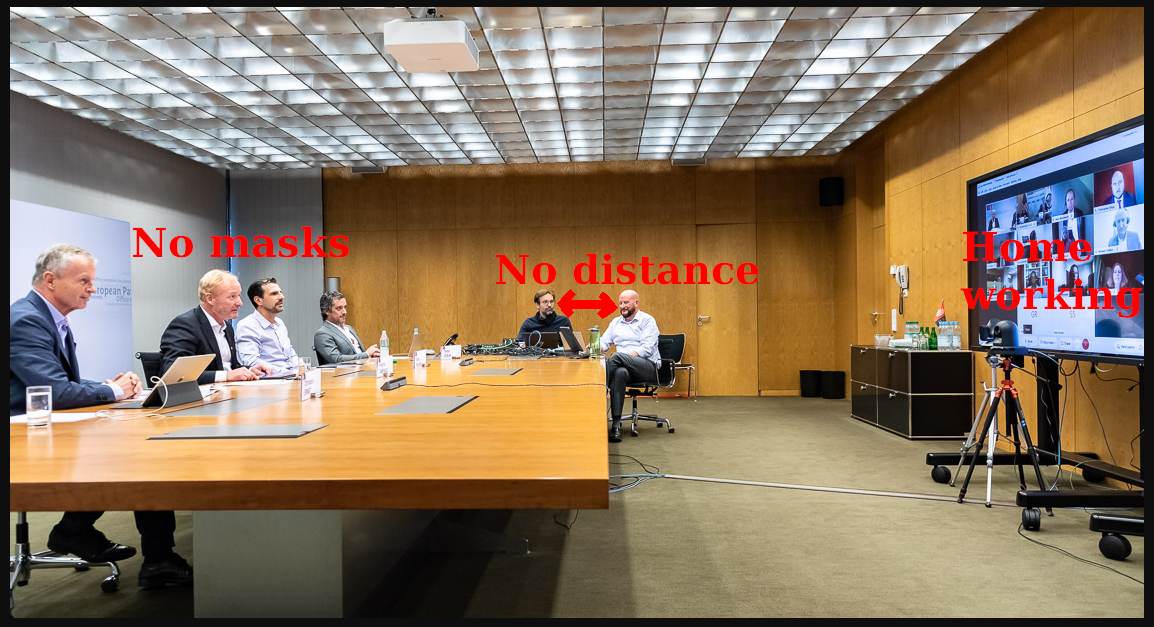
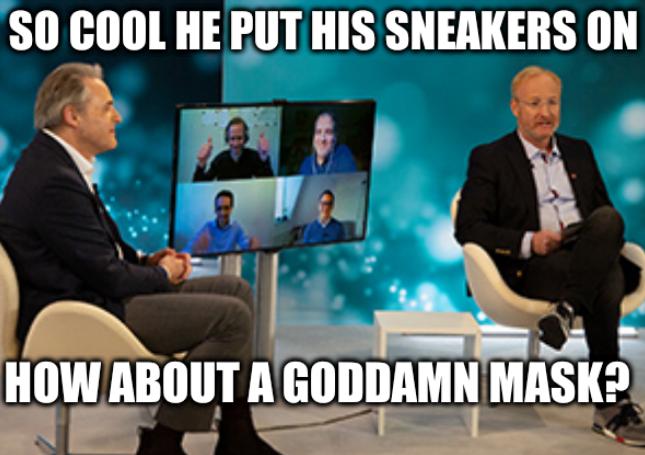
SOME hours ago António Campinos published his latest nonsense (complete with photo ops; warning: epo.org link), reminiscent to the extreme of Benoît Battistelli with his self-promotional puff pieces. Except the appearance, which should take age gaps into account, those two buddies are the same (even the same nationality, French) and they use greenwashing tactics to advocate software patents in Europe -- an illegal agenda. The greenwashing is faking "ethics". They try to associate software with "HEY HI" (AI) and then with "climate". Their text contains "HEY HI" about a dozen times, including right there in the headline/title, e.g. "The role of patents in an AI driven world" (whatever that even means; something to do with "smart" and apparently "climate" too, so "HEY HI" will save the world or whatever). They don't know what they talk about!
"It's quite interesting that even the staff mocks the "strategic plan" of Mr. Campinos, who seems to think that sitting next to people for photo ops (even at a time of this pandemic) is a good idea and a priority."We've long argued that the Office needs to be governed by scientists, not these mindless politicians who name-drop buzzwords and hype.
It's no surprise and not news that the Office routinely violates the law by granting illegal software patents (examiners have no say on the subject; they're forced to follow illegal guidelines). Notice that the Office even calls it "CodeChallenge" (yes, code) and speaks of "coding" when it says:
Last week, the Office announced the winners of the first EPO CodeChallenge during a virtual award ceremony. The finalists took part in a six-week coding competition in which they were asked to use artificial intelligence (AI) to enable the automatic categorisation of climate-related technologies. The event was open to all staff across the EPO and run entirely online.
The coding competition was implemented to enable automation in a particularly important area of patent information: the Y02 and Y04S tagging schemes. The schemes provide a unique source of public information on technologies dedicated to climate change mitigation and adaptation. Two entrants tied in first place: the AITeam (comprising Rodolphe D'Inca, Idir Bakdi, Janis Dingel and Olivier Billet) and Arnaud Wéry. The second place finisher was Leander Hohmann, with the team SNourestani (comprising Sébastien Nourestani, Gonzalo Moro Pérez and Lori Malatesta) completing the podium.
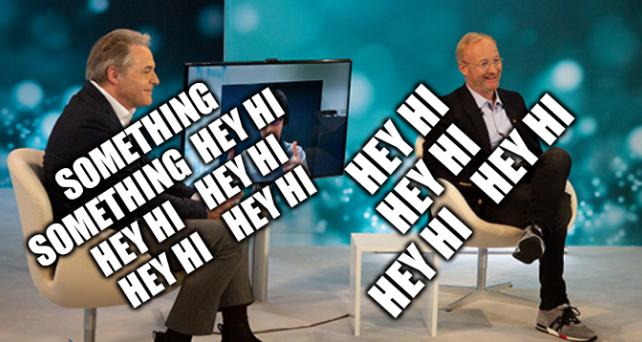 A "coding competition was implemented"; sounds like code disguised as "computer-implemented". The part about "climate change mitigation" is just classic greenwashing to discourage or gaslight critics. Battistelli used to fancy himself a warrior against terrorism and "Nazis" (which is what he called anything who stood in his way).
A "coding competition was implemented"; sounds like code disguised as "computer-implemented". The part about "climate change mitigation" is just classic greenwashing to discourage or gaslight critics. Battistelli used to fancy himself a warrior against terrorism and "Nazis" (which is what he called anything who stood in his way).
Thankfully, staff of the EPO isn't gullible enough; earlier today the staff representation published a rebuttal to a report posted in the EPO's Intranet, basically lying to staff. And last year (2019) the staff's representatives disputed claims made in the EPO's public "news" section regarding a "strategic plan" [PDF].
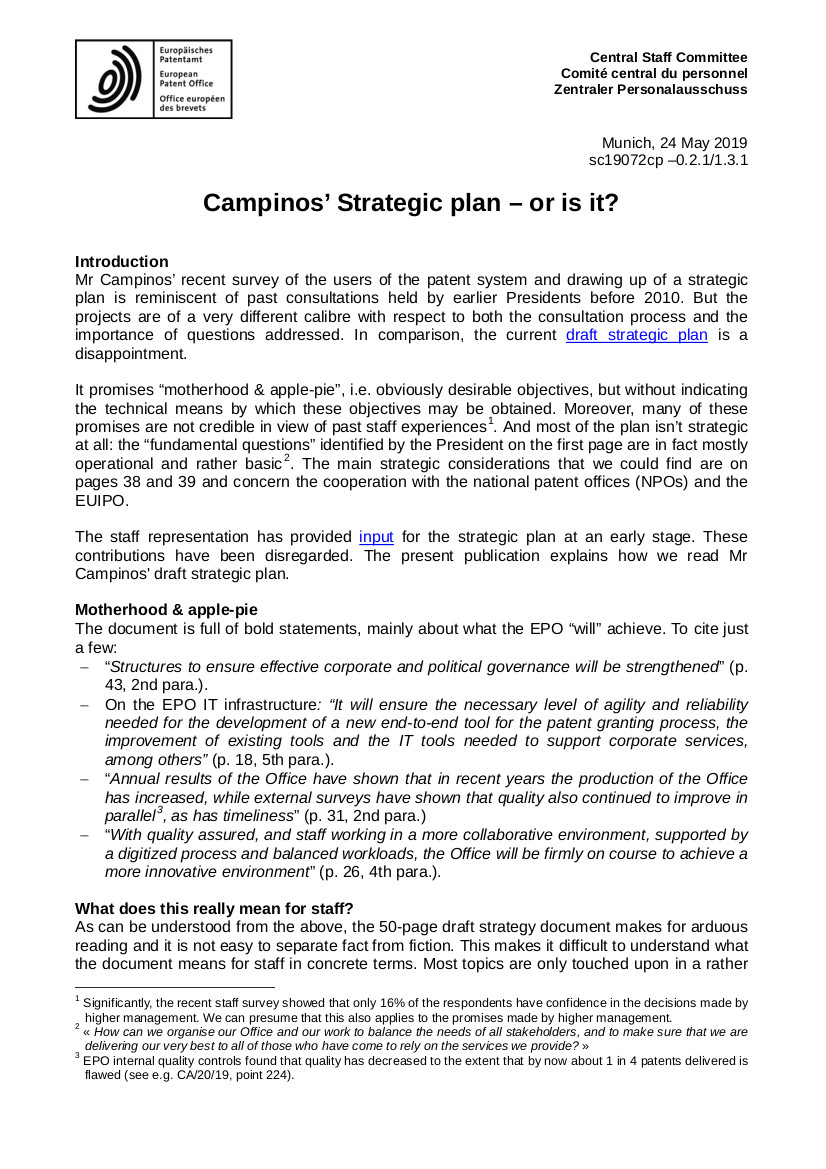
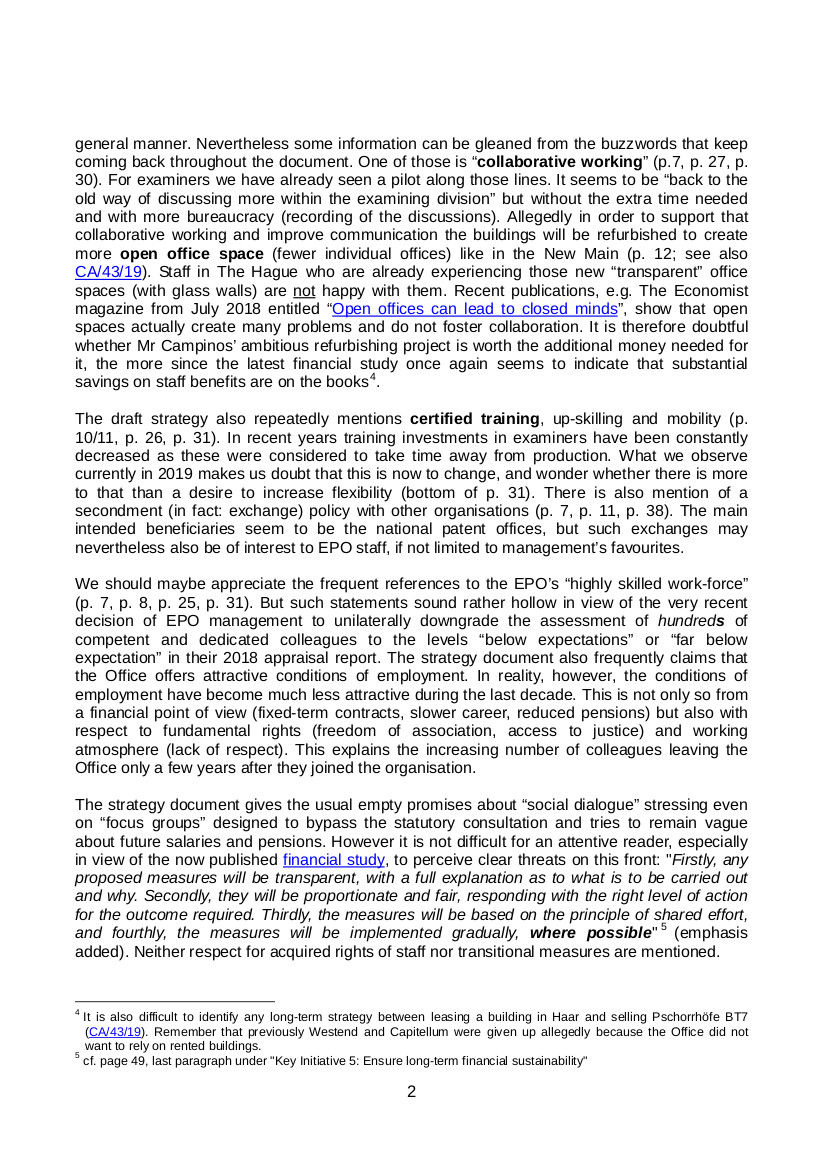
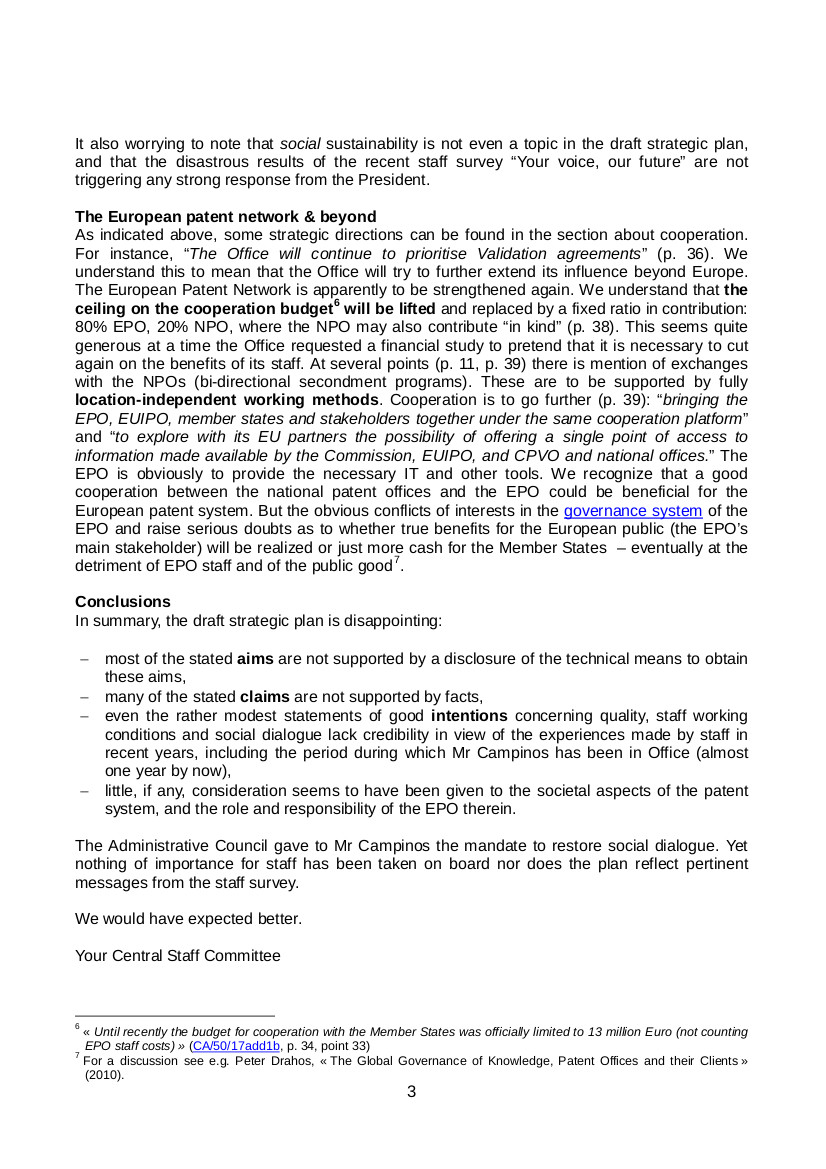
"Staff survey and contributions of staff representation not reflected," bemoaned the staff's representatives at the time, noting: "The current draft strategic plan promises “motherhood & apple-pie”, i.e. obviously desirable objectives, but without indicating the technical means by which these objectives may be obtained. Moreover, many of these promises are not credible in view of past staff experiences. And most of the plan isn’t strategic at all: the “fundamental questions” identified by the President on the first page are in fact mostly operational and rather basic. The main strategic considerations that we could find are on pages 38 and 39 and concern the cooperation with the national patent offices (NPOs) and the EUIPO. The Administrative Council gave to Mr Campinos the mandate to restore social dialogue. The staff representation has provided input for the strategic plan at an early stage. Yet nothing of importance for staff has been taken on board nor does the plan reflect pertinent messages from the staff survey. The present publication explains how we read Mr Campinos' draft strategic plan..."
A really good patent office strives to improve patent quality; what today's Office does is the equivalent of an academic publication eager to publish every single thing submitted, without bothering with fact-checking or a peer-review process.
A decade ago CIO David Wennergren, of the US Department of Defense, said:
"The continuous and broad peer-review enabled by publicly available source code supports software reliability and security efforts through the identification and elimination of defects that might otherwise go unrecognized by a more limited core development team."
